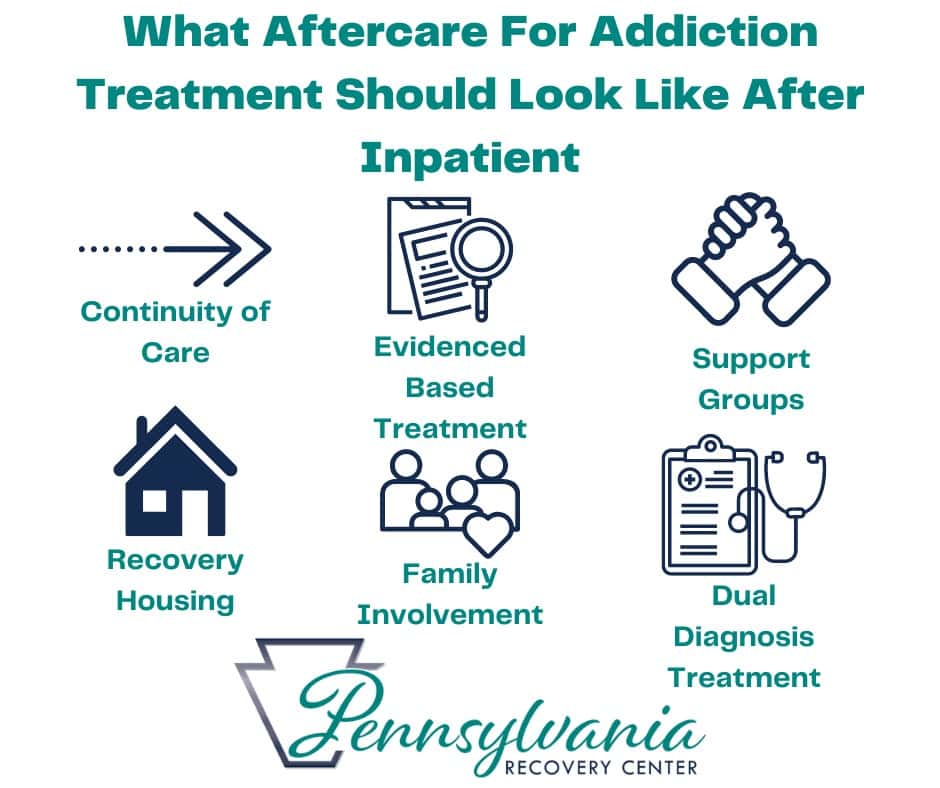Recognizing Material Misuse Rehabilitation: A Course Towards Healing and Recuperation
Chemical abuse rehab is more than simply an area to quit utilizing medications or alcohol-- it is a transformative journey that helps people restore their lives, restore their mental health, and rediscover purpose. Dependency impacts not only the body however also the mind and feelings, usually leaving people really feeling helpless and trapped. Rehabilitation centers provide an organized, compassionate atmosphere where people can break without the chains of dependency and recover. Via treatment, medical treatment, and psychological support, rehabilitation helps customers reclaim control of their lives one action at once.
The Origin of Dependency: Understanding Why Individuals Get Addicted
:max_bytes(150000):strip_icc()/the-effects-of-drug-addiction-5214343-Final-63ee57687f0a4daa90b104897ad6579e.jpg) Addiction seldom happens alone. It is the result of a complex mix of organic, emotional, and social variables. For some, genes play a role-- certain individuals might be extra inclined to dependency as a result of acquired qualities that influence how their brain responds to substances. Others transform to medications or alcohol as a method to handle emotional pain, stress, or injury. When life really feels overwhelming or excruciating, substances can provide a short-term escape, numbing discomfort or producing a false feeling of alleviation. Gradually, nevertheless, that alleviation ends up being reliance, and dependence evolves right into addiction.
Addiction seldom happens alone. It is the result of a complex mix of organic, emotional, and social variables. For some, genes play a role-- certain individuals might be extra inclined to dependency as a result of acquired qualities that influence how their brain responds to substances. Others transform to medications or alcohol as a method to handle emotional pain, stress, or injury. When life really feels overwhelming or excruciating, substances can provide a short-term escape, numbing discomfort or producing a false feeling of alleviation. Gradually, nevertheless, that alleviation ends up being reliance, and dependence evolves right into addiction.Ecological variables additionally substantially add to material abuse. Growing up in a home where medicine or alcohol use is normalized raises the probability of establishing addictive actions later in life. Peer stress, particularly during teenage years, can also press individuals towards experimentation with medicines or alcohol. On top of that, exposure to persistent anxiety, economic battles, or unstable relationships can make individuals extra vulnerable to looking for compounds as a coping mechanism. In a lot of cases, individuals do not start utilizing medicines to become addicted-- they do it to feel better, retreat reality, or get control over their emotions.
 Mental health problems are an additional significant element in addiction growth. Problems such as anxiousness, anxiety, PTSD, and bipolar illness frequently coexist with chemical abuse, developing what is known as a twin diagnosis. People dealing with psychological health and wellness challenges might transform to medications or alcohol to self-medicate and alleviate signs. Substance use just gets worse these conditions over time, producing a devastating cycle that can be hard to damage. Recognizing these origin is necessary because addiction treatment must deal with both the signs and symptoms and the underlying issues to accomplish real recovery.
Mental health problems are an additional significant element in addiction growth. Problems such as anxiousness, anxiety, PTSD, and bipolar illness frequently coexist with chemical abuse, developing what is known as a twin diagnosis. People dealing with psychological health and wellness challenges might transform to medications or alcohol to self-medicate and alleviate signs. Substance use just gets worse these conditions over time, producing a devastating cycle that can be hard to damage. Recognizing these origin is necessary because addiction treatment must deal with both the signs and symptoms and the underlying issues to accomplish real recovery.Exactly How Rehabilitation Can Aid Individuals Rebuild Their Lives
Rehabilitation provides hope, structure, and healing for those battling with addiction. The primary step in rehab frequently entails detoxification, where the body eliminates all traces of drugs or alcohol. This stage is clinically overseen to make sure safety and security and convenience as withdrawal signs can be physically and psychologically challenging. Physician keep an eye on customers very closely, sometimes using medication-assisted therapies to reduce signs and reduce cravings. Detoxification establishes the foundation for long-term healing, preparing people to engage in treatment and various other elements of therapy with a clear mind.
 After detoxification, the focus shifts to therapy and counseling. Cognitive-behavioral therapy (CBT), group therapy, and one-on-one counseling sessions assist people identify the thoughts and habits that resulted in compound usage. These restorative strategies empower clients to establish healthy coping systems, enhance emotional guideline, and restore self-worth. Rehabilitation facilities likewise supply holistic treatments such as art, yoga exercise, reflection, and music, which motivate psychological expression and spiritual healing. Via constant therapy, clients find out that healing is not simply regarding staying away from compounds yet concerning transforming their mindset and way of life.
After detoxification, the focus shifts to therapy and counseling. Cognitive-behavioral therapy (CBT), group therapy, and one-on-one counseling sessions assist people identify the thoughts and habits that resulted in compound usage. These restorative strategies empower clients to establish healthy coping systems, enhance emotional guideline, and restore self-worth. Rehabilitation facilities likewise supply holistic treatments such as art, yoga exercise, reflection, and music, which motivate psychological expression and spiritual healing. Via constant therapy, clients find out that healing is not simply regarding staying away from compounds yet concerning transforming their mindset and way of life.Rehabilitation likewise gives community-- a powerful element in healing. Several individuals that struggle with addiction feel separated or misunderstood. In rehab, they are bordered by individuals that share similar struggles and objectives, cultivating a feeling of belonging and accountability. Team treatment sessions allow clients to share their experiences and urge one another. The bonds created in rehab frequently continue beyond treatment, becoming a crucial component of lasting support networks. This atmosphere of understanding and compassion can make the difference between relapse and continual recuperation.
Discovering the Different Kinds of Therapy basically Abuse Rehab
There are a number of kinds of therapy programs available basically misuse rehabilitation, each developed to attend to various degrees of dependency severity and personal needs. Inpatient rehab programs are among the most detailed, giving 24/7 guidance and treatment in a residential setting. Clients live at the facility for several weeks or months, immersing themselves in a distraction-free and structured atmosphere that focuses totally on recovery. Inpatient programs are excellent for individuals with severe dependencies, co-occurring psychological wellness concerns, or unpredictable home atmospheres.
Outpatient therapy, on the other hand, offers much more adaptability. Customers proceed living in your home while going to set up therapy sessions several times a week. This kind of program permits people to keep institution, household, or work responsibilities while still receiving professional assistance. Outpatient rehabilitation is often best matched for those with moderate to moderate dependencies or as a step-down change after completing Continued an inpatient program. It provides ongoing responsibility and support of healthy behaviors discovered throughout earlier stages of recovery.
Another vital type of therapy is partial a hospital stay or intensive outpatient programs (IOPs) These programs incorporate the intensity of inpatient rehabilitation with the adaptability of outpatient treatment. Customers go to treatment for numerous Read Full Article hours a day, multiple times a week, and return home later. This structure makes sure that individuals get intensive care while gradually reintegrating into day-to-day live. Whether inpatient, outpatient, or IOP, the supreme objective of all therapy programs is to aid individuals establish a sustainable, substance-free lifestyle and equip them with devices to manage life's challenges without considering medications or alcohol.
Different Programs Offered in Rehabilitation Facilities
Rehab centers provide a variety of specific programs to fulfill the varied needs of their clients. Detoxification programs are frequently the very first step, concentrating on securely managing withdrawal symptoms and maintaining customers before treatment starts. Once detox is total, people transition right into recovery programs that target psychological, behavioral, and mental recovery. These might consist of individual therapy, where clients function individually with licensed therapists to explore the source of dependency, along with team therapy, which promotes peer assistance and shared recovery experiences.
Lots of centers additionally offer dual diagnosis programs for individuals dealing with both compound use and mental health and wellness conditions. Dealing with both simultaneously is important, as ignoring one can impede development in the various other. These programs integrate psychiatric care, drug monitoring, and treatment to develop a extensive and balanced method to recovery. Additionally, family members treatment plays a crucial function in healing busted partnerships and reconstructing depend on. Households find out about addiction dynamics, communication strategies, and exactly how to sustain their enjoyed ones Continued during and after therapy.
Some rehab centers likewise supply specialized programs customized to certain demographics, such as veterans, specialists, ladies, or teenagers. Others incorporate all natural and alternate treatments like mindfulness training, physical fitness, nourishment therapy, and outside tasks to promote general well-being. Aftercare and relapse avoidance programs aid clients shift back into everyday life with continued assistance. These programs stress building a strong healing network, setting goals, and preserving liability to ensure lasting success past the rehabilitation experience.
The Long-Term Importance of Substance Abuse Rehabilitation and Recuperation Assistance
Completing a rehab program is only the beginning of the healing journey. Long-lasting soberness calls for recurring dedication, self-awareness, and assistance. Several individuals continue with aftercare programs, that include counseling, colleagues conferences, and check-ins with specialists. These recurring sessions reinforce dealing techniques and offer support during difficult times. By staying attached to a supportive community, individuals can prevent regression and proceed to expand personally and mentally. Rehab teaches that recuperation is not concerning excellence-- it's concerning development and determination.
Another vital aspect of continual healing is lifestyle change. People that leave rehab are encouraged to construct much healthier routines that support their well-being. This includes taking part in physical task, practicing mindfulness, eating nutritious foods, and keeping significant partnerships. As soon as loaded, developing interests or pastimes can also replace the space that substances. Many recouping individuals locate satisfaction in offering, pursuing education and learning, or helping others in recuperation. These positive modifications reinforce the brand-new, sober identity they've built throughout rehab.
Eventually, material misuse rehab is regarding giving people the tools to recover their lives. It offers a foundation for healing the body, mind, and spirit, aiding people discover that life without addiction is not only feasible but deeply fulfilling. Every success story begins with the nerve to seek help, and rehabilitation facilities exist to guide individuals with that transformative trip. With the right treatment, support, and resolution, recuperation becomes not just an opportunity but an enduring fact.
Substance abuse rehab is more than just a location to quit making use of medicines or alcohol-- it is a transformative trip that aids people rebuild their lives, restore their psychological health, and rediscover purpose. In rehab, they are bordered by people who share similar struggles and goals, fostering a feeling of belonging and liability. Outpatient rehabilitation is often best fit for those with mild to moderate addictions or as a step-down change after finishing an inpatient program. Inevitably, compound abuse rehab is about giving individuals the devices to redeem their lives. Every success tale begins with the courage to seek aid, and rehabilitation centers exist to direct individuals via that transformative trip.